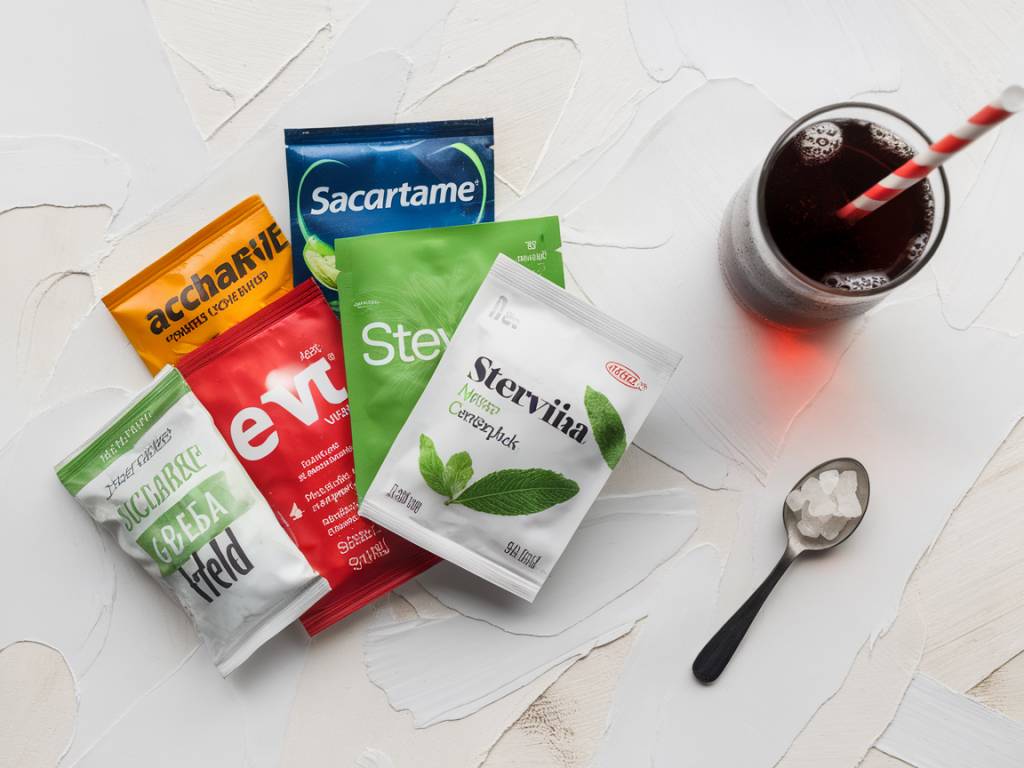The Truth About Artificial Sweeteners and Their Impact on Health
Artificial sweeteners are everywhere. From diet sodas to sugar-free yogurts, they’re marketed as the guilt-free alternative to sugar. But are they really as harmless as they seem? Or do they come with hidden health concerns? Let’s dive into the science and uncover the truth about artificial sweeteners and their impact on your body.
What Are Artificial Sweeteners?
Artificial sweeteners are synthetic sugar substitutes that provide a sweet taste without the added calories of sugar. The most common ones include:
- Aspartame – Found in diet sodas, sugar-free gums, and some protein powders.
- Saccharin – One of the oldest artificial sweeteners, used in sweeteners like Sweet’N Low.
- Sucralose – Found in Splenda and used in many diet-friendly baked goods.
- Acesulfame K – Present in sugar-free desserts, syrups, and soft drinks.
- Stevia* – A plant-based sweetener often grouped with artificial ones but derived from natural sources.
They’re all designed to be much sweeter than sugar, meaning only tiny amounts are needed to achieve the same level of sweetness. But just because they contain little to no calories doesn’t mean they’re completely harmless.
Do Artificial Sweeteners Help With Weight Loss?
Many people turn to artificial sweeteners in an attempt to reduce calorie intake and lose weight. In theory, replacing sugar with a zero-calorie alternative should help with weight management. However, research tells a more complicated story.
Studies suggest that artificial sweeteners may actually increase cravings for sweet foods. Since they’re significantly sweeter than natural sugar, they can overstimulate the brain’s reward system, making you crave more sweets rather than reducing overall sugar consumption.
In some cases, regular consumption has been linked to weight gain rather than weight loss. This could be due to a psychological effect—people consuming diet products might allow themselves to indulge elsewhere, ultimately negating any caloric advantage.
How Do They Affect Gut Health?
Your gut microbiome—made up of trillions of bacteria—plays a crucial role in digestion, immunity, and even mental health. Unfortunately, artificial sweeteners may have a negative impact on these beneficial bacteria.
Some studies suggest that sweeteners like saccharin and sucralose can alter gut microbiota, leading to metabolic disturbances and insulin resistance. A disrupted gut microbiome has been linked to increased risks of obesity, diabetes, and inflammatory diseases.
While more research is needed to fully understand the long-term effects, early findings raise concerns about the impact of artificial sweeteners on gut health.
Artificial Sweeteners and Blood Sugar
Since artificial sweeteners contain little to no calories, they shouldn’t affect blood sugar levels… right? Not so fast.
Some research suggests that certain artificial sweeteners may cause an insulin response even if they don’t contain sugar. This means they could still have an effect on blood sugar regulation, which is especially concerning for individuals with diabetes or insulin resistance.
Additionally, as mentioned earlier, altered gut bacteria might play a role in worsening insulin sensitivity over time.
Are Artificial Sweeteners Safe?
Regulatory bodies such as the FDA and the European Food Safety Authority (EFSA) have deemed artificial sweeteners safe for consumption within recommended limits. However, some concerns remain, particularly for high and prolonged consumption.
Potential risks that have been debated include:
- Metabolic disorders – Changes in insulin response and weight gain.
- Gut microbiome imbalances – Possible disruptions in beneficial bacteria.
- Neurological effects – Some studies have explored links between artificial sweeteners and migraines or mood changes, though results remain inconclusive.
It’s important to remember that individual responses vary. Some people can consume artificial sweeteners with no visible effects, while others experience digestive discomfort or increased cravings.
Natural Alternatives: Are They Better?
If you’re looking to reduce or eliminate artificial sweeteners, there are natural alternatives worth considering:
- Stevia – Derived from the leaves of the Stevia plant, it offers a natural, zero-calorie option.
- Monk fruit sweetener – Also calorie-free, it has a mild, pleasant sweetness.
- Honey and maple syrup – While they contain sugar, they’re less processed and provide additional nutrients.
- Coconut sugar – A lower-glycemic alternative to white sugar.
While no sweetener is perfect, choosing natural options in moderation may be a healthier approach for those wanting to limit artificial additives.
Final Thoughts
Artificial sweeteners have been marketed as a safe and effective way to reduce sugar intake, but their impact on health is still a topic of debate. While they may help some people cut down on calories, they can also have unintended effects on weight, gut health, and metabolism.
If you consume artificial sweeteners, doing so in moderation is key. Pay attention to how your body feels and consider balancing your diet with more natural sources of sweetness. And as always, whole, nutrient-rich foods should remain the foundation of a healthy lifestyle.
What’s your experience with artificial sweeteners? Have you noticed any effects on your body? Let me know in the comments!




